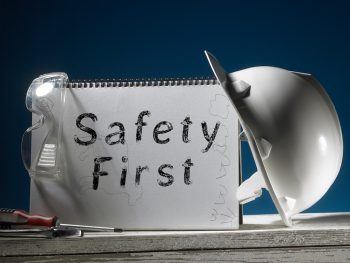Almost all tradespeople have been injured at work, according to research by Direct Line business insurance, shedding light on the urgent need for improved health and safety awareness.

Analysis of Health and Safety Executive data reveals 47,000 people working in construction trades suffered a non-fatal injury at work in the three-year period 2021/22 – 2023/24. There was also nearly one fatality a week (51 fatal injuries) in the construction industry in 2023/24.
According to the HSE data, approximately 425,000 working days were lost in 2021/22-2023/24 in the construction sector due to workplace injury, severely disrupting livelihoods and placing significant strain on businesses.
Over a quarter (26%) of injured tradespeople were off work for six months or more while recuperating from an injury. Worryingly, 96% of tradespeople report not knowing anyone in their field who has avoided workplace injuries, highlighting the widespread nature of the issue.
Nearly one in five (18%) tradespeople said they are not aware of health and safety procedures related to their job.
Just a third (37%) of tradespeople would speak to a trainee or apprentice onsite if they weren’t following health and safety procedures and less than half (41%) of tradespeople would intervene if a health and safety breach put their own safety at risk. Concerningly, less than two-fifths (37%) of those accountable for safety on site would actually address a colleague for not following health and safety procedures.
Mark Summerville, product manager at Direct Line business insurance, commented: “Health and safety awareness in some businesses remains inadequate, resulting in preventable workplace injuries and in some rare cases, fatalities. Neglecting to implement and adhere to health and safety regulation can lead to severe physical harm, avoidable business interruption and potentially significant legal repercussions.
“It is essential for businesses and their employees to ensure that they have the correct health and safety training in place so that they stay informed about current regulations. It is also important to foster a culture where safe working practices are deeply embedded so that people get home safely to their families and loved ones.”

